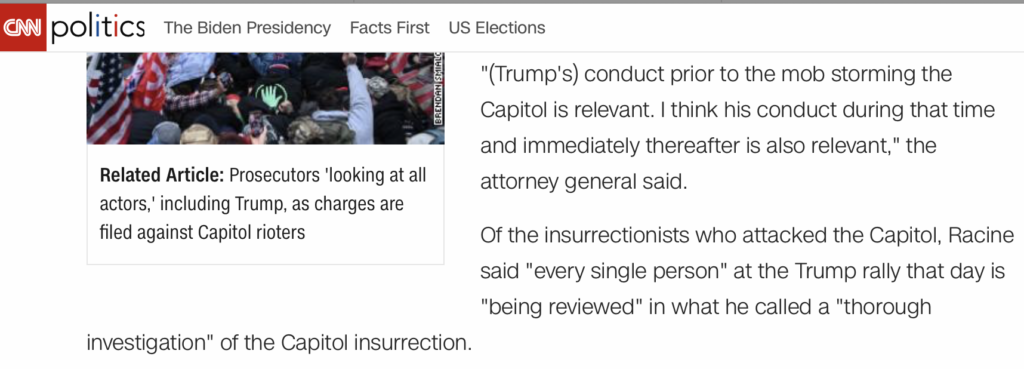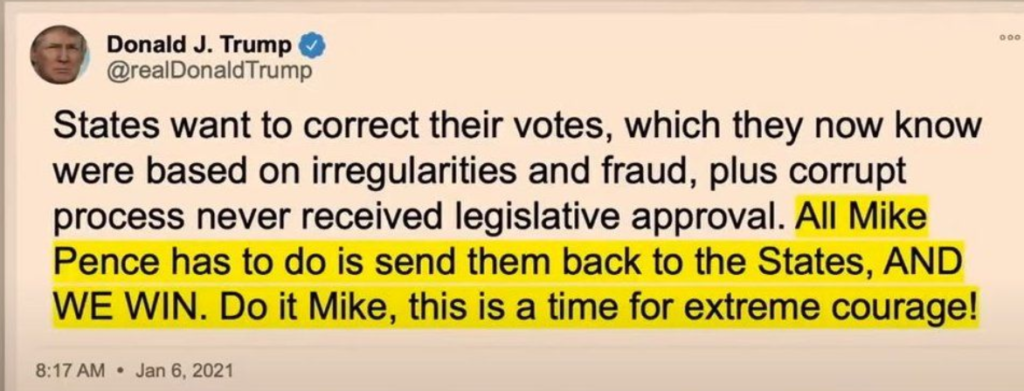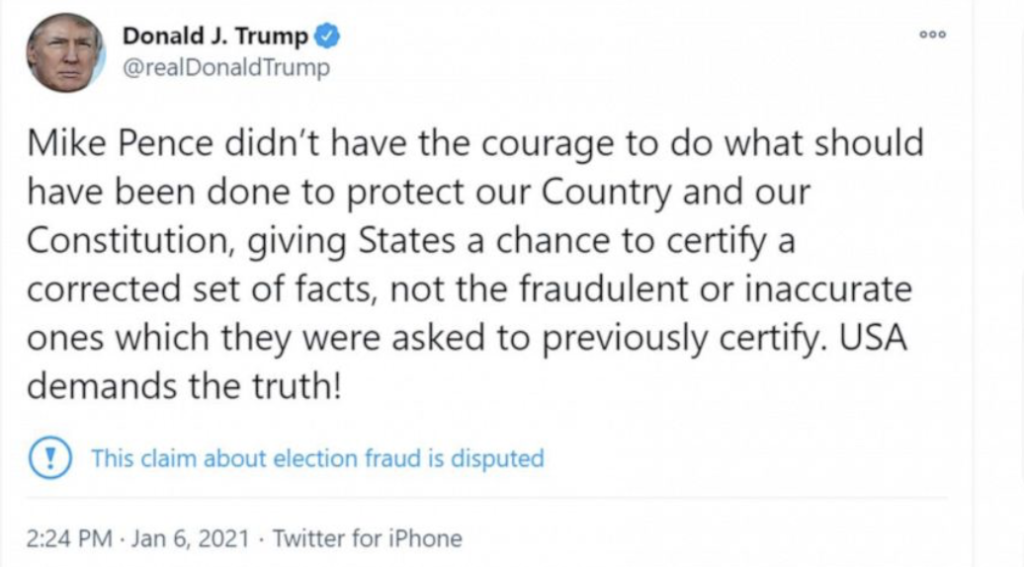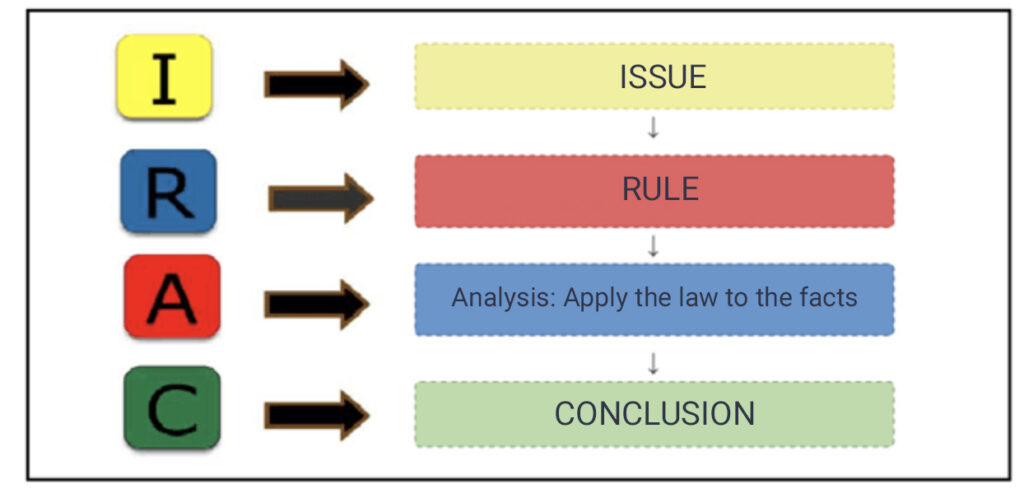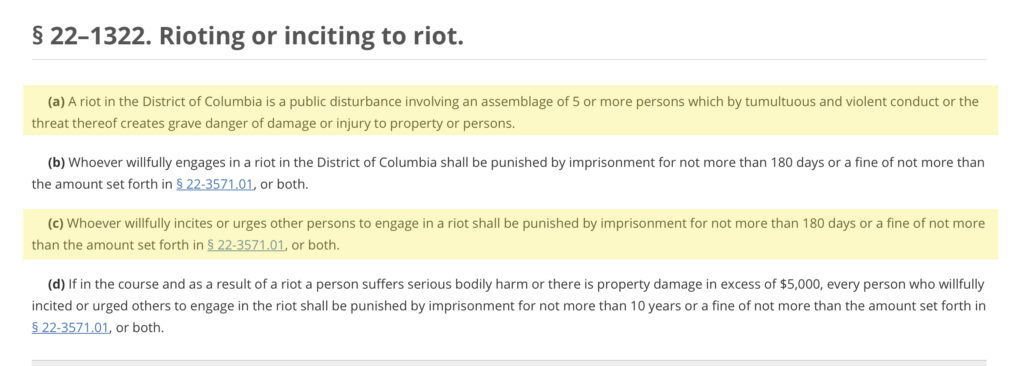Once more, this is a transcription of a video I recorded. I find it easier to record a video, and then publish a transcript. The question I’ll be exploring is whether Trump incited a riot under the D.C. Code. (Sources at the end).
Washington DC attorney general Karl Racines said that he’s looking into whether Trump and the others should be charged with inciting a riot. Specifically he said:
First, to very briefly summarize the facts, which I’m sure are well known to all of you. For months after the election, Trump riled his supporters with the lie that the election had been stolen. After losing all those cases in court and watching all of his attempts to subvert the election fail, he got the idea that if he stopped the counting of the electoral votes (which he seemed to think Pence had the power to do) and if he stopped the certifying of the election which would occur on January 6 in Congress, he could somehow prevent Biden from being certified as the winner and he could somehow come out the winner of the election.
It was never really clear how his plan was going to work because the counting of the votes is a formality, and Pence didn’t actually have the authority or power to stop it. What I suspect, because Roger Stone was involved, was that the plan was something like what Roger Stone did in Florida in 2000, when he had a bunch of riled up people protesting the counting of votes, and he did manage to stop the counting of votes. And we all know how that came out.
So Trump called his supporters to Washington, D.C. on January 6th for a “stop the steal” rally. He told them it would be wild. On the day of the riot, he specifically targeted Pence. At 8:17 a.m., he tweeted this:
During the rally, Trump called out Pence several times. He also said things like “Fight like hell, or you won’t have a country anymore.” Not coincidentally, at the time that the votes were going to be counted in Congress, Trump pointed his supporters toward Congress. A few highlights about the timeline.
At 12:53 the first barriers were breached at Congress.
At 1:58 there was hand to hand combat between the insurrectionists and the capitol police.
By 2:00, a massive crowd breaches a separate barricade on the East side.
At 2:11, the rioters on the West side break in. Two minutes later, they reached the stairs next to the Senate.
We’re told that Trump was watching the coverage of the rioting and approved of what was happening. Here’s the crucial part of the timeline.
At 2:14 Pence was removed by security agents and evacuated. Republican Senator Tommy Tuberville said that he informed Trump immediately that Pence had been evacuated.
At 2:24, Trump tweeted this:
Obviously, if Trump knew that Pence was in danger, and tweeted something like that, Trump appears to be, shall we say, trying to cause trouble. This brings us to the Washington D.C. code and the question: Did Trump incite a riot in violation of D.C. Code section 22-1322.
I’ll show you how to run through the legal analysis. We’re going to use a method known to law students everywhere called IRAC.
We start with the issue, which is the question we want to answer: Did Trump violate this statute. The R in IRAC is for Rule. Before someone can be convicted of something it has to be a crime, which means the law has to be on the books. The statue in question is this one:
The relevant elements are (a) and (c). To convict someone, the prosecutor has to prove both of those elements beyond a reasonable doubt, which is the highest possible evidentiary standard.
So let’s look at the first element: You need a public disturbance involving an assemblage of 5 or more persons which by tumultuous and violent conduct or the threat thereof creates grave danger of damage or injury to property or persons. Basically, first you have to have a riot, before you can convict someone for inciting the riot.
Element (a) is a no-brainer. We all saw the pictures. There was a riot. Now we come to element (c) Whoever willfully incites or urges other persons to engage in a riot shall be punished. . .” (Maybe I should have called this video Teri Does IRAC. Or Fun with Criminal Law.)
Did Trump’s actions satisfy (c), did he incite or urge others to engage in a riot? That one seems like a no-brainer also, right–particularly because stopping the counting of the votes, if that was all that happened, would be lawless. Even Mitch McConnell said Trump was morally and practically responsible for the Capitol riot. I’ve never worked as a prosecutor, but I would imagine a prosecutor at this point in the analysis would be saying, “Yeah, he did it. But can I prove it?”
Trump has a few defenses. Trump knows how to couch his words carefully. Michael Cohen, in his testimony before Congress, a few years ago explained how Trump lets people know what he wants them to do without saying it directly. That’s his style. Remember, “I’d like you to do us a favor, though.” Trump will say, “I told them to be peaceful. Just because I said ‘fight’ doesn’t really mean I meant fight. People use the word ‘fight’ all the time.”
Personally given the totality of the circumstances, I think it’s a lame defense, but I suppose a juror who wants to hold out can say, “I have a reasonable doubt.”
Trump has another, better, defense: He’ll raise a First Amendment defense, which comes from a case called Brandenburg v. Ohio. This is a case in which a guy named Brandenburg was convicted for his speech to Klan members. He made racist comments and there was about to be a big march. The Supreme Court handed down a rule. Because we want to protect free speech as far as possible, a person can only be prosecuted for things like inciting a riot if their speech overturned Brandenburg’s conviction and handed down a rule: A defendant can only be convicted if his speech was “directed to inciting or producing imminent lawless action and was likely to produce such action.” This is intended to be a high standard. Personally I think that Trump’s speech incited imminent lawless action, so we’ll see what happens.
Federal prosecutors, by the way, have about 96% conviction rate. This is because they only charge crimes when they’re sure they can get a conviction. D.C. requires the jury to be unanimous. One holdout juror and there is no conviction. If Trump gets charged and acquitted that will be a lot more harmful than if he isn’t charged at all because he would be vindicated. This is why prosecutors will take care to make sure their case is airtight. That said, given what we’ve seen, I will be surprised if we don’t see Trump, Mo Brooks, Giuliani and others charged under this statute.
Karl Racine also said his office is collaborating with federal authorities who are investigating the riot. The D.C. incitement of a riot is a mere misdemeanor. D.C. isn’t a state, so there is a lot of overlap between what the D.C. prosecutors can charge and what the federal prosecutors can charge. Federal prosecutors have more serious charges they can bring. The federal investigation is a separate investigation. I’ll be talking about that in another post.
Meanwhile, I’m often asked why these things take so long.
Due process takes time. Criminal investigations take time. No prosecutor worth his salt rushes to charge someone. Right now, the investigations are unfolding. I’ve I talked about how democracy is slow grinding work and that Authoritarianism has a lot of appeal because it’s quick. “Off with his head,” said the Queen of Hearts. Our courts move slowly. There are process and procedures, because that’s what rule of law is. Rule of law is process and procedure.
The phrase justice delayed is justice denied doesn’t refer to criminal procedures. It doesn’t say you have to rush criminal matters or there is no justice. What it means is that if a person is entitled to some kind of relief and doesn’t get it because the relief is delayed it can be too late to avert the harm. In this case, the crime is done and the investigation will take time. Prosecutors know they have a five year statute of limitations, which gives them time to collect and verify all the evidence.
Sources:
Timeline from the Washington Post
New Documents in the Capitol Seize timeline

